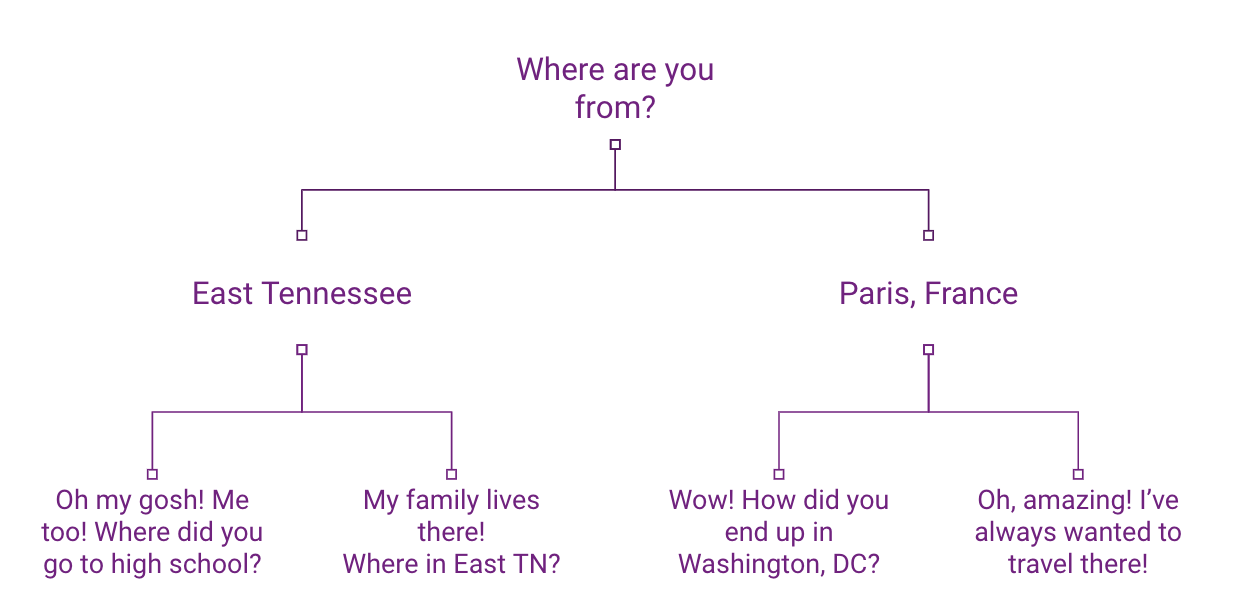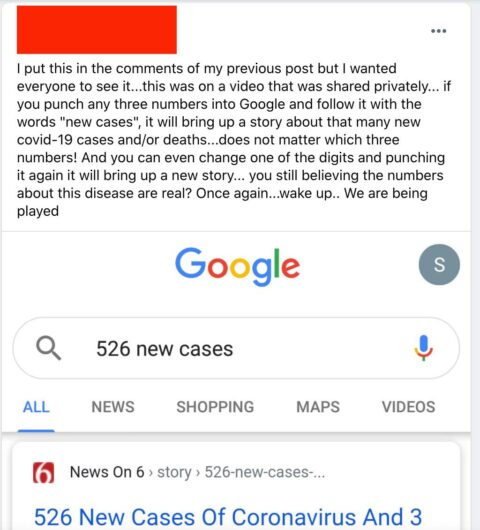If you’ve been anywhere on social media in the past few years, you’ll likely have noticed an increase in suspicion amongst ordinary (read: non-marketing) people regarding algorithms, tracking, artificial intelligence, and machine learning.
The fear makes sense.
When you don’t understand exactly how something works, it can sometimes seem like negative forces are at play when you don’t get exactly what you’re expecting from those programs.
For example, President Trump regularly tweets implying that Twitter’s trending topics are biased against him.

And, more recently, I saw a comment thread amongst Facebook friends claiming that if you search any 3-digit number and the words “new cases,” you’ll get news about COVID cases with those exact numbers – which to them proved that COVID is a hoax.
Political and medical affiliations aside, the underlying issue is often that people don’t trust algorithms and machine learning because they don’t have a complete understanding of how they actually work.
So let’s go over a basic primer of how these work for things like search, social media, and other common technology applications we use daily.
Algorithms Can Still Be Biased
Before we really dig in, though, it’s important to understand that algorithms, machine learning models, and artificial intelligence can be biased by the programmers who develop them.
But, to be frank, they are often biased in favor of those in power or in the majority (as those are often the people creating the machine learning models – and aren’t aware of their own implicit biases).
Check out my other piece on Search Engine Journal about this here.
Along with the original inputs that affect how these algorithms work, the nature of ML and AI means that the inputs that users contribute also affect the outcomes (we’ll chat more about this in a minute).
This means that the machine learning models learn how we search and use social media and end up customizing our results based on that information.
That seems great when we can find the exact pizza recipe we were looking for, but it’s less great when we’re searching for critical information and don’t get unbiased answers from our information sources.
How Algorithms Work at a Basic Level
The point behind algorithms and machine learning on the web essentially is to replicate the decision making processes of the human brain – without we humans having to take in all the information and time needed and sort through it on our own.
It’s supposed to be a shortcut to the human thinking process almost.
At the most basic level, algorithms are a bunch of if-then statements taking place in a computer very quickly to give you an outcome: If you do A then you get B. If you do C instead, then you get D.
Say you ask an acquaintance, “Where are you from?”
Based on their answer, there are certain options that will be your go-to responses.
If they say they’re from your childhood hometown, you’ll have a much different response than if they say they’re from a place you’ve never been to before.

This is a simplified version of how an algorithm works.
But the idea is that each path leads a certain way and the computer follows the workflow or the formula to the next step.
When you search for something on Google, the same sort of thing happens.
You may search “Chicago pizza” and based on the information Google has about you, your location, and your search history, it may give you a recipe for Chicago pizza or tell you what restaurants serve pizza in Chicago.
What Is Machine Learning & How Does It Work?
The most basic idea behind machine learning is that the inputs you enter can affect the future recommendations or outcomes of the algorithm.
At the most fundamental level, the algorithm “learns” your preferences and takes them into account during your next use of the if-then statements.
One example of this is what shows up in places like Google News or even your Facebook recommended pages to like.
Based on the way you interact with these sources, the algorithms try to show you more of what it thinks you prefer.
For example, if I follow a bunch of animal rescue pages (that categorize themselves as such on Facebook), the algorithm “learns” that I really care about adopting dogs.
From there, it can show me both targeted ads (dog food, dog toys, dog beds) and recommendations for other pages to like, videos to watch, or groups to join.
This can also go the other way. If you click on or engage with a lot of articles that are negative or that you disagree with (even just to see what’s being said), the algorithm can only determine a click – not necessarily your intent behind it.
This means that when it starts to show you more content like what you’ve clicked, it’s only doing so based on the programming and your actions.
So when Donald Trump accused the news of being biased, he likely doesn’t understand that a lot of the news results he sees are personalized based on what the algorithm has learned of his online behavior.
If he reads a bunch of articles that cast him in a negative light, Google News will think that’s what he likes to read – and serve him more articles like that. It’s a machine learning catch-22.
Algorithms Aren’t Trying to Trick You
It seems like quite a few people who mistrust tech companies and other large entities believe that algorithms and machine learning models have advanced to a point to take on a mind of their own.
While we’re probably closer to iRobot than ever before, your search engine results are likely not purposefully engineered to trick you or distort reality.
And oftentimes the results we get are purely math-based.
For example, I saw a Facebook post from someone who was convinced that, because you can search for any 3-digit number with the keyword “new cases,” and Google will show you a result for that exact number and new COVID cases – that those numbers were inherently false.

However, this case just demonstrates statistically that there are so many information sources publishing data at such high rates that there are enough pieces of information on the web for Google to find results for any of those numbers.
Statistically, if every location-based entity (towns, cities, counties, states, regions, provinces, countries) releases COVID numbers at regular intervals (daily, weekly, monthly, quarterly), it’s inevitable that there will be 1-, 2-, 3-, 4-, and even 5-digit COVID news results when you search that number and “new cases” on Google, Bing, or any search engine.
All that typing any number into Google and “new cases” really proves is that algorithms can “read” and “understand” news-release data from websites based on the stored information in the search engine’s library of webpages and regurgitate it back to searchers.
Especially because it would exactly match your search question and the search engine assumes that’s what you’re looking for.
It’ll think it did a great job getting you exactly what you said you needed.
From this perspective, search engines and social media are more of a “good boy” bringing the stick you threw back to you as opposed to a criminal mastermind trying to steal your freedom and take all your money.
Search engines were built to retrieve the most relevant result for you as a searcher (based on lots of factors including your search and click history, timeliness, relevance, etc.).
So, it does not prove a conspiracy theory just because you can find info on something online (or if you can’t!).
But Marketing Does Affect Results
The thing about search engines and social media is that the results served up are made by other humans.
While more technology is working to verify results (like the fact-checking on Facebook), anyone with a basic knowledge of search engine optimization or social media marketing has the opportunity to influence those results.
This fact is just important to keep in mind as you peruse results.
Marketing plus that personalization data means that modern tech platforms will do their best to profit off you as a user.
This is why it can sometimes feel like you’ll think about something and get a Facebook ad for it later in the day.
Just a basic understanding of how algorithms, machine learning, and marketing personalization works can help you be a more informed consumer of content on the web.
By keeping in mind that these processes are often just if-then programs informed by your stored preferences, we can help fight misinformation about tech – and get more searchers and social media users involved in how to make them better moving forward.
More Resources:
- How Search Engines Work
- Google’s Baby Algorithms: How to Think About Them for SEO
- Do We Have the Math to Truly Decode Google’s Algorithms?
Image Credits
All screenshots taken by author, August 2020





![AI Overviews: We Reverse-Engineered Them So You Don't Have To [+ What You Need To Do Next]](https://www.searchenginejournal.com/wp-content/uploads/2025/04/sidebar1x-455.png)